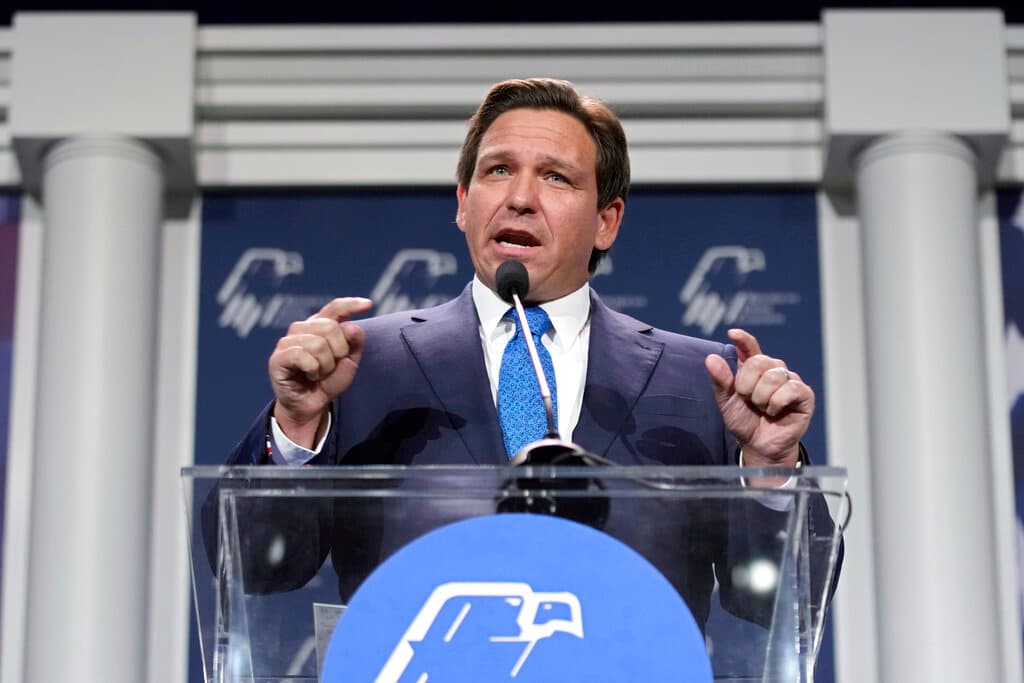DeSantis Targets Hot-Button Social Issues for New Florida Legislative Session as Presidential Bid Looms
On the agenda: expanding the so-called Don’t Say Gay bill’s protections to older children and cracking down on the use of ‘preferred pronouns’ that don’t reflect one’s biological gender.

With a potential presidential bid from Governor DeSantis on the horizon, the coming legislative session in Florida will likely be the governor’s last opportunity to put legislative points on the board before he announces his campaign.
Please check your email.
A verification code has been sent to
Didn't get a code? Click to resend.
To continue reading, please select:
Enter your email to read for FREE
Get 1 FREE article
Join the Sun for a PENNY A DAY
$0.01/day for 60 days
Cancel anytime
100% ad free experience
Unlimited article and commenting access
Full annual dues ($120) billed after 60 days

